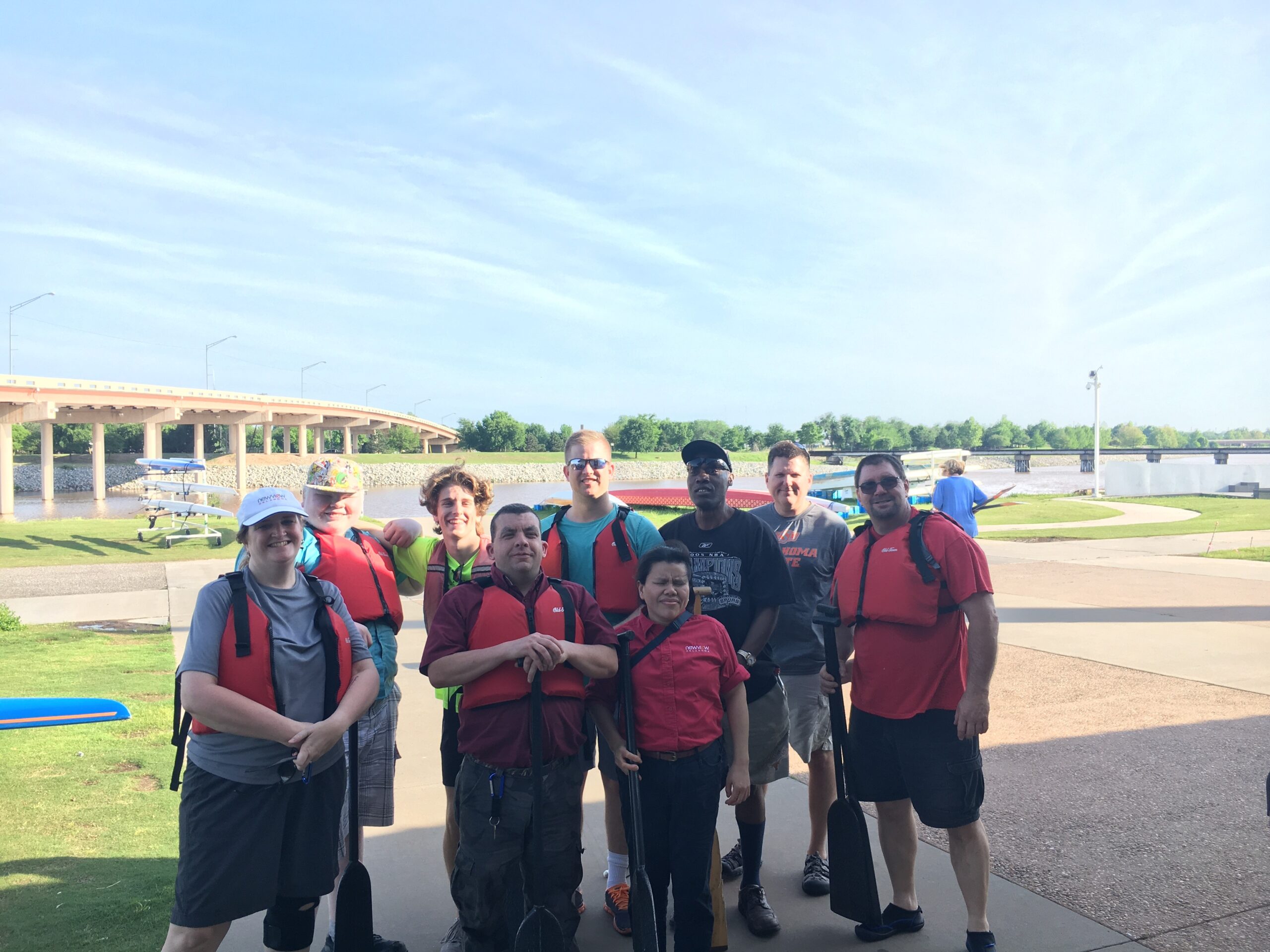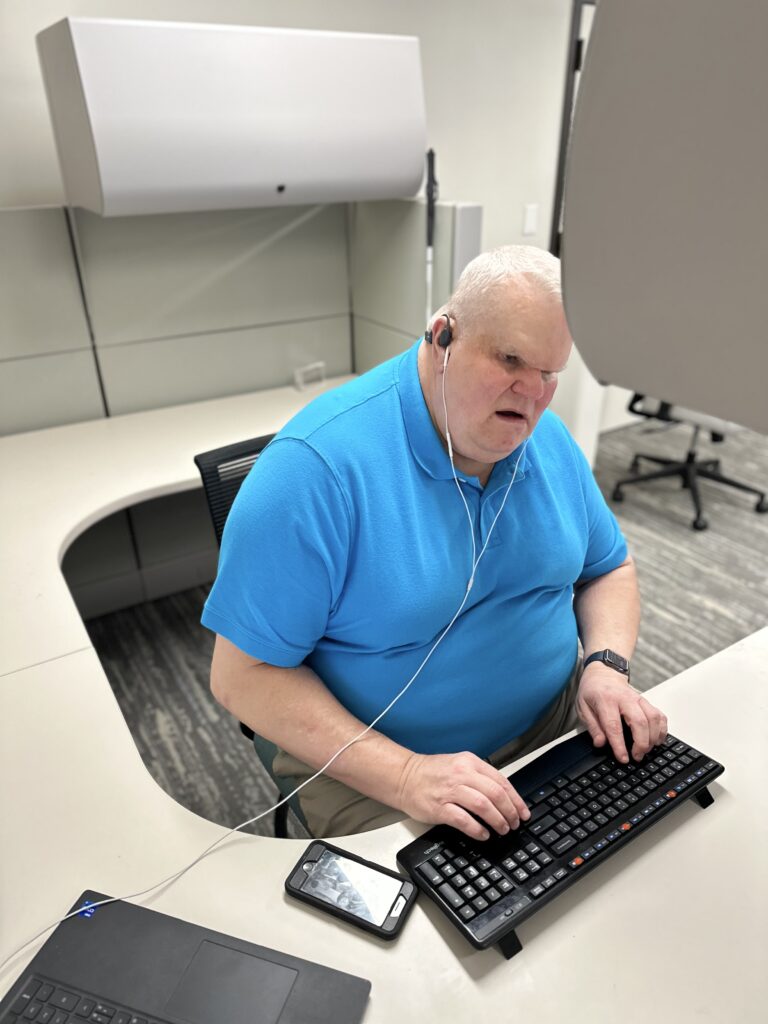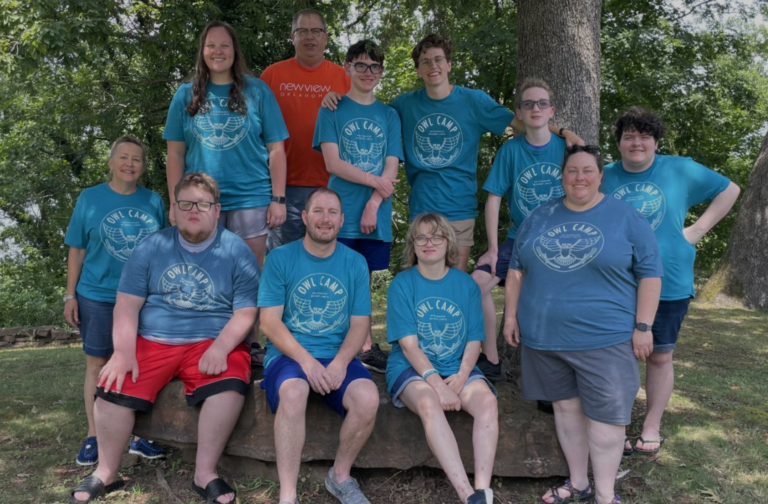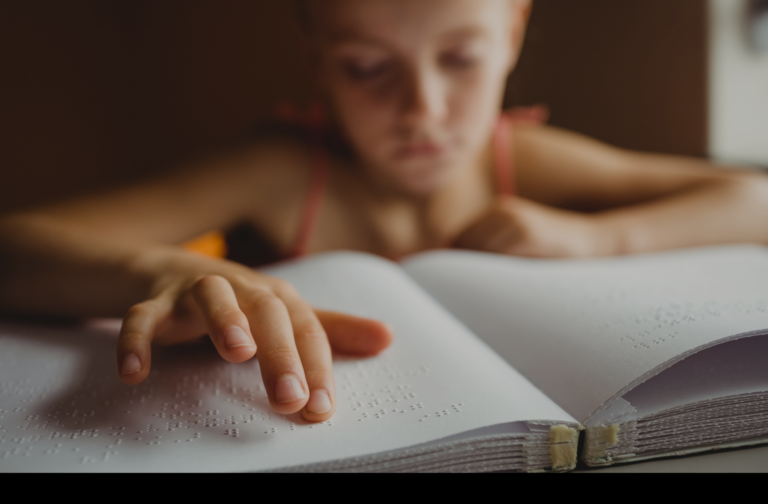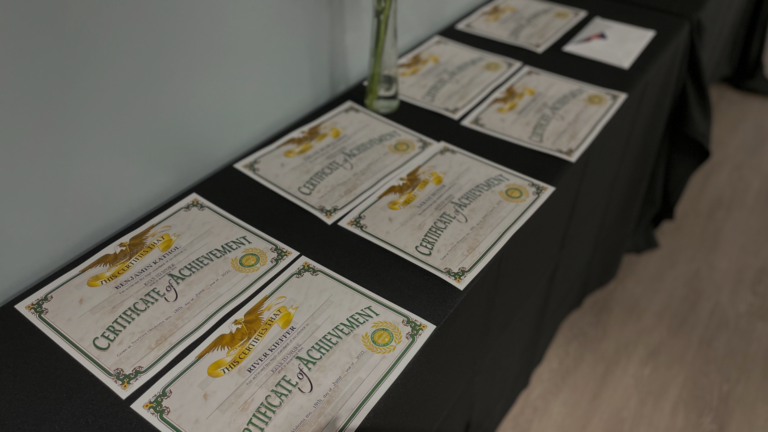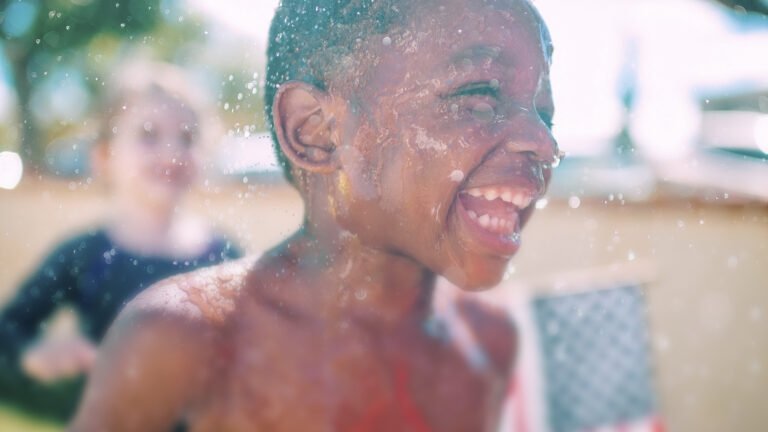All about adaptive sports
Today, NewView Community Outreach Specialist and Public Policy Advocate Mark Ivy talks about adaptive sports and his most recent endeavor into dragon boating.
I’m a huge sports fan. I love watching sports, playing sports, and talking sports. When I started to lose my vision ten years ago, I slowly stopped playing—I had made up my mind that it wasn’t an option for blind and visually impaired people. But I was wrong. Not long after losing my sight, a blind gentleman told me about a game called beep baseball. Beep baseball is played with a baseball that makes beeping sounds, and everyone is blindfolded except the pitcher. I did everything I could not to belittle this game he was explaining. After all, it wasn’t very long ago that I was playing actual baseball at a high level. I was too good for beep baseball; I was too cool to be blind.
As time went on, I learned more about adaptive sports through my younger brother, who also has low vision. He told me about a sport he was playing called goal ball. A goal ball game includes two teams of three on opposite ends of a basketball court. The objective is to roll a large ball toward the other team in hopes that the ball gets behind the three defenders and into the goal. Again, I dismissed the sport. Then my brother sent me a YouTube video of the sport. The video title read “Team USA Goal Ball,” and it showed an Olympic goal ball game that literally changed my life. That video validated that I couldn’t have been more wrong about adaptive sports—it validated that I could still feel the rush of competition, even without my sight.
Soon after that, my brother and I were accepted to attend a week-long goal ball training clinic with Team USA in Colorado Springs at the Olympic Training Center. We were surrounded by superior athletes who were visually impaired or blind. We trained for four days and competed in the Colorado State Tournament on the final day, finishing in third place.
When we returned to Oklahoma, reality set in. In Oklahoma, adaptive sports are not widely played or acknowledged, but this is something my brother and I are trying to change. We’re even looking for opportunities to play beep baseball. That’s right, I’m no longer too cool for beep baseball. In fact, my “too cool” list gets shorter every year. Most recently, I marked off dragon boating from that list.
Dragon boating is not an adaptive sport, but it’s the only sport that comes to mind where blind people are not at a significant disadvantage. Dragon boat teams include several paddlers and one drummer—the paddlers sit on benches in the boat, and the drummer sits at the front of the boat. The drummer’s job is to drum at a steady pace that synchronizes the entire team. Even for teams of sighted people, it’s essential that the paddlers rely on the drummer’s beat more than their sight. This ensures that everyone syncs up with one standard—the drum beat. During my first practice with our team of NewView employees, I didn’t understand the importance of locking into the drummer’s cadence. But once I got the hang of it, I found myself not using my vision at all.
If you grew up playing sports, you’ve heard the phrase “there’s no I in team” a million times. Dragon boating is teamwork in its purest form. There’s nothing more gratifying than teamwork done right. It also serves as motivation and confidence for ten blind people competing against sighted teams. I truly believe that if we maximize our one hour per week practices, our ears can give us an advantage to be competitive and make some noise in the Stars and Stripes Regatta this summer. We may not win the tournament, but we can take a giant step forward by beating a few of our competitors, and we can prove that blind people are able to compete alongside sighted people.
I’m excited for Oklahoma’s future for blind and visually impaired athletes, and I can’t tell you how good it feels to get another taste of the addicting rush competition brings.
